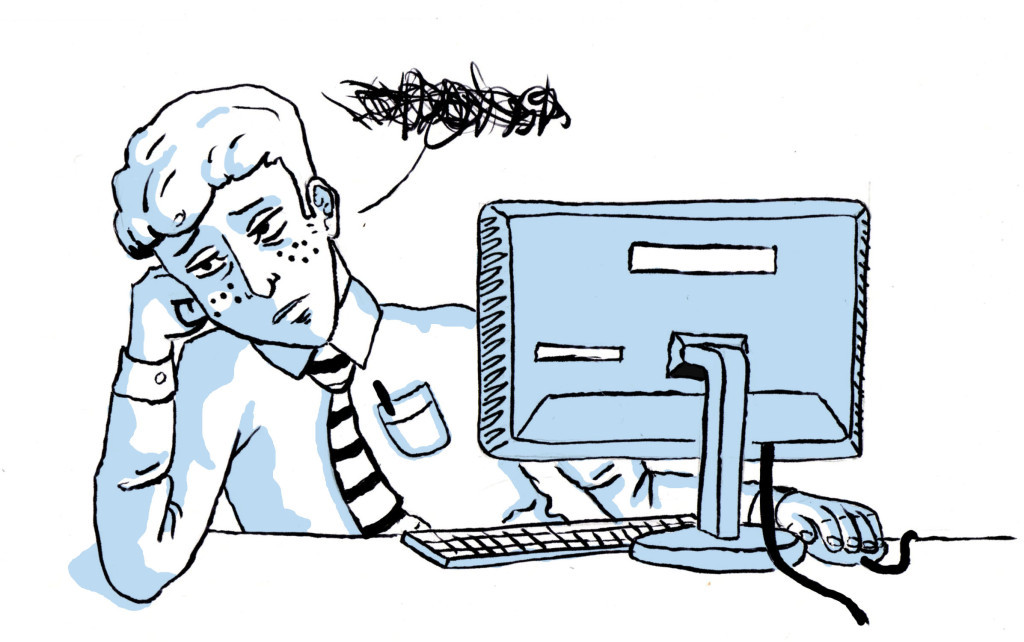Happy on the job, or happy in life?
By Sophie Isbister, Staff Writer
If there’s anything that we can all agree on, it’s that life is hard. Jobs don’t pay enough, rent’s too high, and groceries are getting more expensive every year. The experience of Canadians definitely seems to be reflecting this trend. In a recent Ipsos-Reid poll, it was discovered that one in five Canadian workers experience depression. In a similar vein, a September 10th Macleans article titled “Campus crisis: the broken generation” profiles depression and suicide at US and Canadian campuses.
Both the Macleans article and the Canadian Broadcasting Corporation (CBC)’s coverage of the depression poll focus on ways that campuses and workplaces can support people living with mental illnesses like depression and anxiety. Sure, employers can offer comprehensive mental health benefits such as access to counselling and good extended benefits, but does that really solve the root issue of our culture’s malaise epidemic? And what’s so bad about being depressed anyway? I can see a lot of other things that there is to be upset about.
Take, for example, the pressure to be happy itself. A quick perusal of the Craigslist jobs section tells me that employers are looking for a “positive attitude and enthusiastic outlook,” a “fun-loving” employee who can “work well under pressure while keeping a smile.” This is all fine and good in service and hospitality (if you hate people, it’s probably in your best interest to steer clear of these industries anyway), but you’re expecting me to have a “get-up-and-go attitude” in my job scraping barnacles off the underside of Rosie O’Donnell?
“Happiness,” that nebulous, hard-to-grasp concept, seems to be the number one requirement to find employment these days. But I think all our problems could be solved if we focused on attaining happiness through avenues that aren’t tied to our livelihood. Think about what you’d do if you didn’t have to work 40 hours a week. I like to think if I had an extra day off I would read more, or spend more time with friends and family, maybe devote more time to my personal writing. If I worked a six-hour day instead of an eight-hour day, I might use that extra two hours to prepare a wholesome lunch for the next day or divide my time between domestic duties and social engagements. I know I’d sleep more, feel less rushed, and apply a clearer head to the work that I do.
When your identity is wrapped up in your employment, and that employment is underpaid and loaded with this awful I’ll-take-all-your-bullshit-and-thank-you-for-it expectation, it’s no wonder Canadians, workers, and students alike are depressed. Perhaps instead of pushing people to work 50 hour weeks, instead of overtime being the norm, instead of subtly penalizing women in the workplace for taking maternity leave, society should evolve to work less. Why else have we created all this wealth in the Western world if not to reap the benefits of prosperity? What would be a better benefit than the freedom to develop an identity separate from your work, to have the time to foster a strong community? Maybe I’m an idealist, but I hope that the next iteration of Canadian society can open their minds to the idea that the 40-hour workweek is damaging our health, both mental and physical.


